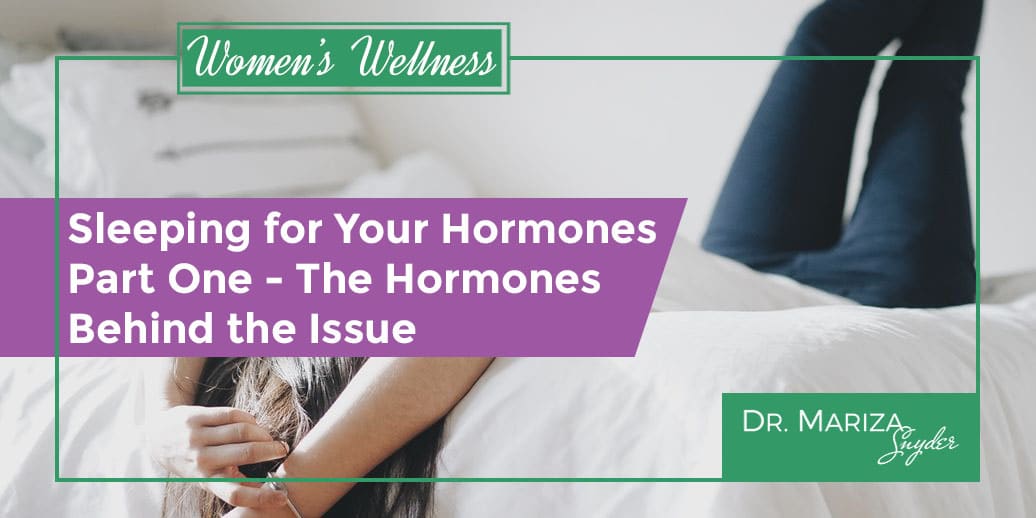
Do you wake up feeling like you’ve never slept?
Are you tired but wired every morning by the time you leave the house?
Do you feel too busy to sleep or find yourself saying things like “Sleep is overrated!” or “I’ll sleep when I’m dead.” or “I just don’t need that much sleep?”
Are you exhausted at night but unable to shut down the mental chatter and relax enough to sleep?
I have been in your shoes, and I know that you cannot keep living this way indefinitely.
Chronic exhaustion will get the best of you!
You’re not sleeping well, or even enough, you are anxious more than you would like to admit, your stomach is in knots, you’re moody, and you’re having trouble remembering simple things.
This is not normal!
Many of us are suffering from Sympathetic Nervous System Dominance. In layman’s terms, that means that you’ve exposed your body to so much chronic stress that your hormones now perceive you to be in a constant state of physical danger. Your body is left dealing with constantly elevated levels of cortisol and adrenaline for so long that all of your bodily systems have been disrupted.
And you need to sleep for your body to rebalance and recharge. The stress causes an inability to relax and sleep for fear that harm will come to you when you close your eyes, but to correct this downward spiral, your body desperately needs restorative sleep every night.
Sleep is a part of the problem and a part of the solution.
HORMONES NECESSARY FOR RESTORATIVE SLEEP
Progesterone
In addition to being an essential reproductive hormone, Progesterone is a sleep-promoting hormone that keeps us calm, reducing anxiety and symptoms of depression. When progesterone levels are optimal, we are relaxed and sleep well, but, when our adrenal glands go into overdrive and pump out cortisol from excess stress, our reproductive system is put on hold in favor of survival.
Estrogen
Decreases in estrogen levels due to aging or some disorders make us susceptible to other symptoms-turned-stressors, such as hot flashes and night sweats, that can disrupt our sleep. On the flip side, chronic stress lowers progesterone leaving our bodies with an excess of unregulated estrogen. Add that to the onslaught of estrogen in our environment and estrogen dominance becomes a fact of life for many of us.
Melatonin
Melatonin is a neurotransmitter-like hormone that regulates our circadian rhythm (our body’s sleep-wake cycles) and relies on darkness for production to increase. As nighttime approaches and the sun begins to set, your body’s melatonin levels begin to rise, and, vice versa, when daylight creeps in, levels decrease and cortisol levels rise to wake up and get going. When you fight against your body’s natural circadian rhythm by staying up late with the lights on, over time, you alter your body’s melatonin and cortisol levels.
And now comes the real damage – while these three players support healthy sleep, unhealthy levels of these hormones lead to larger systemic issues. Let’s now explore the hormonal imbalances that are caused by unsupported levels of needed sleep hormones.
HORMONAL IMBALANCES FROM LACK OF SLEEP
While this is not an exhaustive list of hormones affected by sleep, they are major players in maintaining our health. Take a trip through your complicated hormonal system with me and see how deep this sleep issue can be…
Thyroid Stimulating Hormone (TSH)
Your thyroid plays an incredibly important role in terms of regulating other hormones. It regulates your metabolism, energy level, estrogen, and progesterone release, just to name a few. If your thyroid is malfunctioning, it can throw off everything from your reproductive system to your digestive system, which can lead to sleep issues such as insomnia. On the flip side, if you are not getting enough sleep because you’re keeping crazy hours, you can, in turn, inhibit your thyroid from doing its job effectively.
Human Growth Hormone (HGH)
While Human Growth Hormone is responsible for the rapid growth we experience during childhood, our pituitary gland continues to produce this hormone into adulthood. It is responsible for repairing and restoring our muscles and other body components while we sleep, promoting a healthy metabolism, and enhancing our physical performance. As we age, we produce less of this hormone, and sleep deprivation can exacerbate this fact. The two biggest factors controlling our HGH secretion are exercise and sleep. In fact, as much as 75% of our HGH is secreted during deep sleep, but, when we don’t get enough sleep, our pituitary gland pumps out less of this vital hormone, which increases our risk of heart disease, obesity, diabetes, and mental health issues.
Leptin
Leptin is known as a satiety hormone. Released by fat cells, it signals your brain that you are satisfied and suppresses your appetite dependent on adequate sleep duration. When you are sleep deprived, your fat cells decrease their secretion of leptin, therefore lowering your chances of feeling satisfied when you eat. This, of course, may be one of the many reasons we have trouble losing or maintaining our weight.
Ghrelin
Ghrelin is the antithesis of Leptin. Secreted by the stomach, this hormone stimulates the appetite for our nourishment and survival. However, if you’re suffering from sleep deprivation and your appetite is not being suppressed by normal Leptin levels, your Ghrelin secretion increases causing you to be hungrier than you normally would. This leads to dangerous binge-eating, midnight snacks, and unhealthy cravings because our hunger signals have gone haywire. It’s no wonder many of us gain weight when we are sleep-deprived or when hormones are imbalanced.
Insulin
Produced and released by your pancreas, this hormone enables your body to metabolize glucose, your body’s main source of energy. Unless you are diabetic, your insulin levels should be normal, but sleep deprivation can lead to insulin sensitivity or resistance. Studies have shown that otherwise healthy individuals who are sleep-deprived may have reduced insulin sensitivity., Lack of sleep leaves the cells in your body unable to properly respond to insulin, increasing your blood sugar levels. This leaves your cells starved for glucose to maintain proper function and energy levels, leading to chronic high blood pressure that stresses all of your major organs, potentially leading to catastrophic issues such as diabetes.
Cortisol
It should come as no surprise that the main stress hormone affects your sleep, keeping us awake and alert to combat perceived danger. While melatonin helps us to sleep and decreases as daylight starts to shine in, cortisol levels should rise to wake our bodies up and stimulate all systems to prepare for the day. This is our natural circadian rhythm and it is necessary. But, problems arise when we sabotage these rhythms by staying up late, allowing artificial light and activity, having an imbalanced diet, and a host of other things that we don’t even realize. When you add chronic stress to the situation, you precipitate a vicious cycle of chronically-elevated cortisol levels and chronically-depressed melatonin levels, preventing you from both getting to and staying asleep.
WHAT’S A GIRL TO DO?
The simple answer – get some sleep! But that’s easier said than done. Check out Part Two of this series to see the steps that you can take to restore your body’s circadian rhythms and hormonal levels to support a restful and restorative night’s sleep.



No comments yet.